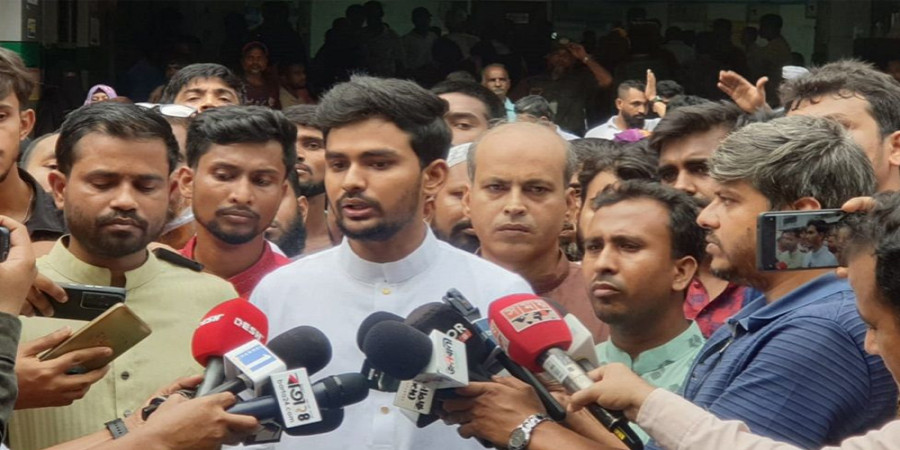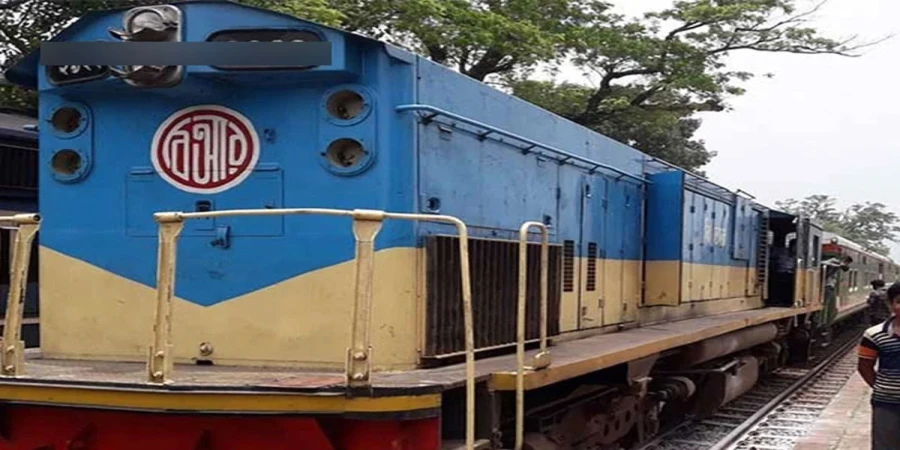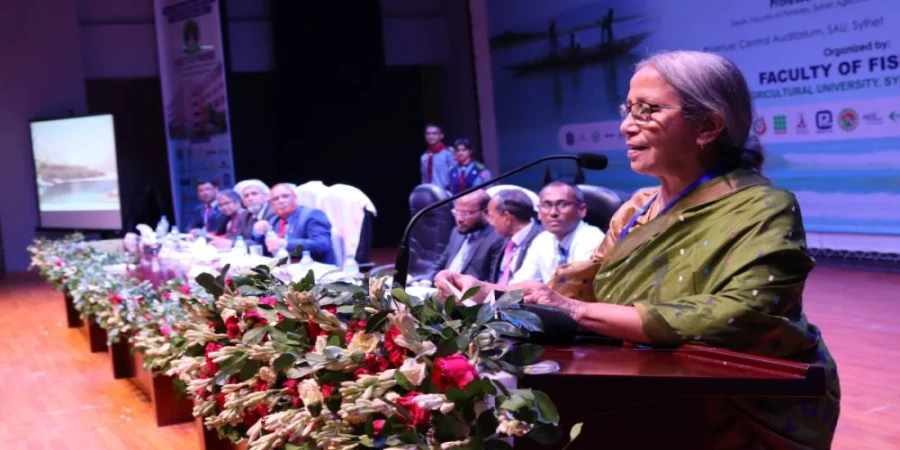
ছবি: -Collected Photo
Youth and Sports Adviser Asif Mahmud Sajib Bhuiyan has declared that the interim government must take responsibility for the brutal attack on Gono Odhikar Parishad President Nurul Haque Nur, a prominent leader of the July Uprising. Speaking to reporters after visiting Nur at Dhaka Medical College Hospital on Sunday (31 August), Mahmud strongly condemned the assault, calling it a disgraceful act carried out against one of the country’s most visible political figures.
According to the adviser, Nur sustained serious injuries in the attack, including a fractured nose and brain hemorrhage. “This is an inhuman and cowardly attack on a leader who has stood in the front lines of the July movement,” Mahmud said. He assured that the government has already taken responsibility for Nur’s treatment, adding that he would be sent abroad for advanced medical care if necessary.
Mahmud insisted that the incident was not only an attack on a political leader but also a direct challenge to democratic principles. He claimed that fascist forces, angered by the strength of the July Uprising, are now targeting its leaders in an effort to weaken the movement. “We will not allow this fascist mindset to prevail,” he warned, stressing that both the government and the people would resist any attempt to silence democratic voices.
The adviser revealed that a high-powered investigative committee has been formed to uncover the perpetrators behind the attack. He pledged that all individuals and groups involved would be brought to justice. Moreover, he pointed to certain institutions within the state apparatus that, according to him, continue to function in support of authoritarian forces. These, he said, would be carefully scrutinized as part of a broader effort to ensure accountability.
Highlighting the gravity of the situation, Mahmud compared the incident with past political violence in Bangladesh. “Even during the Awami League’s time in power, there was no record of such a violent assault on the head of a political party,” he said. He described the attack on Nur as unprecedented in its brutality and demanded an immediate and transparent investigation to reassure the public.
The adviser was particularly critical of the role of the Jatiya Party, accusing its members of instigating the violence. “How can a registered political party engage in mob violence?” he asked. According to Mahmud, the initial attack on Nur was launched from the side of the Jatiya Party. He argued that while political rivalries and heated confrontations are not new in Bangladesh, orchestrating mob violence under the guise of political activity is unacceptable. He went further to label the Jatiya Party as a “fascist force” within the country’s political system, suggesting that its actions were part of a broader scheme to pave the way for the return of the Awami League to power.
Mahmud alleged that there are groups who want to delay the next general election under the pretext of creating an “inclusive process,” while in reality attempting to manipulate the outcome by facilitating the Awami League’s return. He warned that the people of Bangladesh would not tolerate such tactics and emphasized that the interim government must ensure fair and transparent elections free from partisan interference.
On the question of whether the Jatiya Party would face a ban following its alleged role in the violence, Mahmud clarified that no final decision had yet been made by the government. However, he acknowledged growing public demand for stronger measures against the party. He confirmed that the Chief Adviser of the interim government has already called for dialogue with all registered political parties, where the issue of Jatiya Party’s role and potential restrictions on its activities will be discussed.
Throughout his remarks, Mahmud stressed the symbolic importance of Nur’s role in Bangladesh’s current political landscape. As a key leader of the July Uprising, Nur has become a figurehead for a new wave of political activism challenging old power structures. “Targeting Nur is an attempt to intimidate the entire democratic movement,” Mahmud said, adding that the government was determined not only to ensure Nur’s safety but also to protect the broader aspirations of those advocating for change.
The attack on Nur has already drawn sharp criticism from political observers and activists across the country, many of whom see it as a dangerous escalation of political violence. Human rights advocates have called for immediate accountability, warning that impunity would only embolden those intent on destabilizing the fragile democratic transition.
As Nur continues to receive treatment under close medical supervision, his supporters have vowed to stand firm against intimidation. For them, the attack has become a rallying cry, reinforcing their demand for a political system free from authoritarian practices and repressive violence.
Adviser Asif Mahmud concluded his remarks with a stark warning to those responsible for the attack: “The people of Bangladesh will not forgive or forget this crime. Justice will be delivered, and the democratic struggle will continue stronger than before.”
repoter






